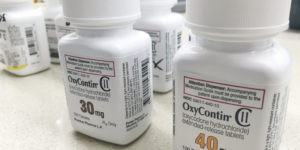COPD study: inhaled corticosteroids may not be for everyone?
One of the most popular treatment strategies for chronic obstructive pulmonary disease (COPD) is a two-barreled approach, using a long-acting ingested drug and an inhaled corticosteroid (ICS). But researchers have discovered that not everyone benefits from the addition of an ICS.
The 12-month WISDOM study tracked more than 2,200 participants with COPD and a history of exacerbations. Some used an ICS in addition to Spiriva and a long-acting beta2 agonist, while the control group used Spiriva and the beta2 agonist without an ICS. Researchers found that 80 percent of the participants didn’t seem to benefit from using an ICS in addition to the other two drugs and saw “no additional benefit in reducing the risk of exacerbations or ‘flare-ups,’” according to the results, published in The Lancet-Respiratory Medicine.
It’s all about eosinophils, a certain type of white blood cell, researchers say. People with eosinophil levels of 4 percent or less don’t seem to benefit from the addition of the ICS. The study noticed a clear correlation between eosinophil levels and the way participants reacted (or didn’t react) to the ICS treatment compared to those who used no ICS.
Previous studies have established that long-term use of ICS can increase the risks of pneumonia, osteoporosis and diabetes. Having better ways to determine who may or may not benefit from ICS treatments can go a long way to avoid further chronic conditions.
“Long acting bronchodilators are a mainstay therapy in COPD management, however in clinical practice, ICS is widely used across all COPD stages,” said study investigator Peter Calverley, DSc, Professor of Pulmonary and Rehabilitation Medicine, University of Liverpool, UK, in an announcement from Boehringer Ingelheim, the German pharmaceutical company that funded the study. “Previously, it has been difficult to determine the subset of patients who respond to ICS. These findings will help physicians more confidently identify which patients may benefit from ICS therapy, helping minimize exposure to the risk of long-term side effects of ICS use.”

Pamela Tabar was editor-in-chief of I Advance Senior Care from 2013-2018. She has worked as a writer and editor for healthcare business media since 1998, including as News Editor of Healthcare Informatics. She has a master’s degree in journalism from Kent State University and a master’s degree in English from the University of York, England.
Related Articles
Topics: Clinical











